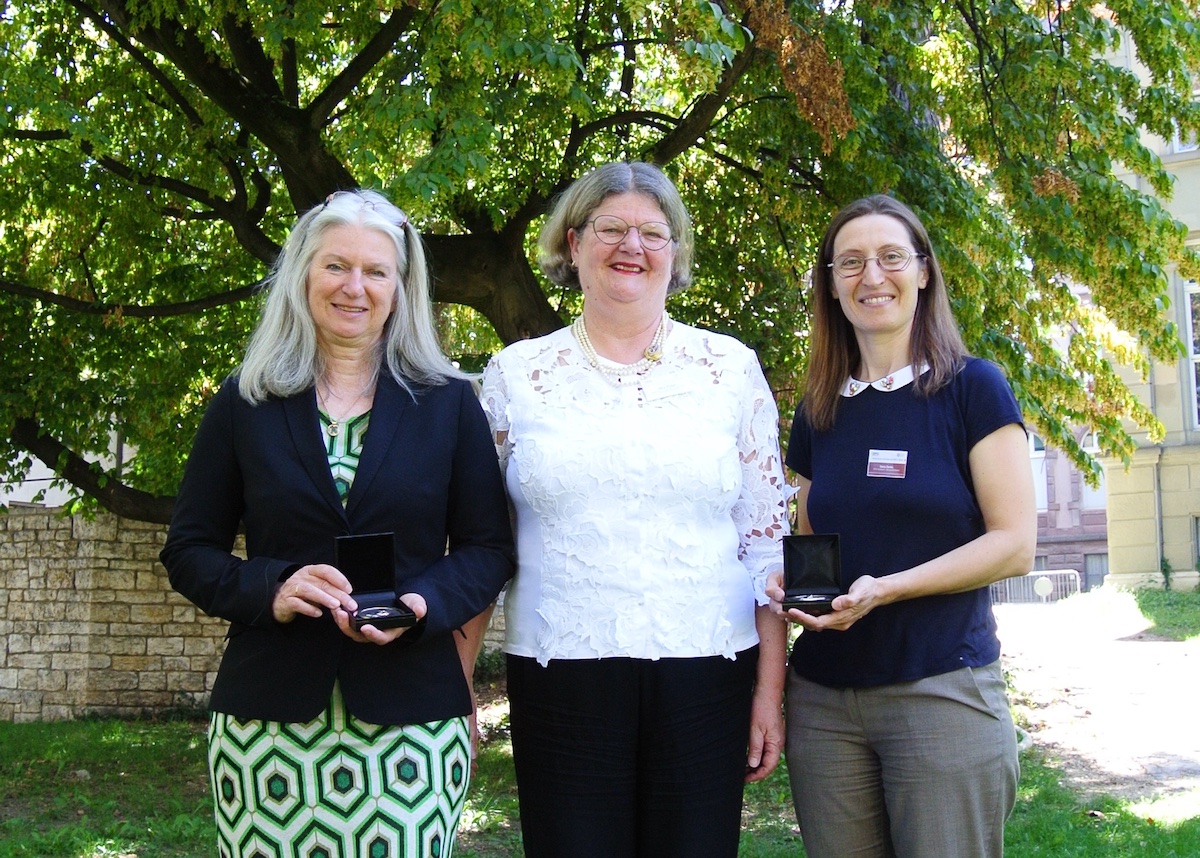
FLTR: Monika Ritsche-Martke, Petra Rudolf and Ilaria Zardo - image credit: Gina Gunaratnam
Petra Rudolf, chair of the EPS Equal Opportunities Committee,
and Gina Gunaratnam, EPS communication coordinator, interviewed Ilaria
Zardo [IZ], from the Department of Physics, University of Basel (CH),
and Monika Ritsch-Marte [MRM], from the of the Institute of Biomedical
Physics, Dept. of Physiology & Medical Physics, Medical University
of Innsbruck (AT). They are laureates of the EPS Emmy Noether
Distinction 2022.
Why did you choose physics?
IZ:
I was interested in Greek, Latin and Philosophy. When I told my parents
I wanted to study physics, it was a big surprise. Especially to my
father who wondered why I had studied all these subjects to "end up"
with sports (in Italian "physics" and "sports" is the same word).
MRM:
I wanted to find a position in relation to Nature. I come from an
academic family, so they encouraged me. But outside, I didn't get
positive reactions. After having attended the Open Days in Innsbruck, I knew
that I wanted to get a master's degree in sciences.
What is the most rewarding aspect of your career and what difficulties did you encounter?
MRM:
It is nice to have recognition from the community but the most
rewarding is when I do active research, when I get results and I
understand things from Nature.
In the 80s', women had to face
difficult times. There were aggressive attitudes. My younger brother
and my husband are also scientists and they were offered positions while
I didn't get one.
IZ: The most rewarding is when I first finish a
project. When I realise that I found something. When I have gone
through all the paths to get where I want to go and I reach it, this is a
rewarding moment. It is also beautiful to see the same way of
thinking/development in people you work with.
Difficulties: We are
trained to be scientists but not to deal with people. You have a strong
contact with your colleagues. You need trust and faith. This is very
challenging.
Recommendations to encourage diversity
IZ:
I am extremely happy to have a very diverse group: different countries,
different backgrounds. I was motivated by a colleague who told me that
you gain much more from someone who is different from you, who will have
another approach to a problem.
MRM: Quotas are important to get
women involved [in research groups] and I don't care about being called
"Quotenfrau" ("quota woman" in German). It shouldn't be the aim but is a
necessary measure to have more women. If they can do the job, they
should be given the chance.
Career and family
MRM:
I married a colleague! So there was competition between us. It is
difficult to get everything you want once you have a family. I consider
it a "fermionic principle ": either you choose the field of research you
are interested or the place where you want to live. You cannot have the
two at the same time. My advice: be determined but flexible. And ask
yourself the following: What is something I cannot live without?
In my case, I changed fields: from theoretical physics, I switched to medical physics.
IZ:
"I am not a hero!" I have three children and my husband is also a
physicist working in industry. I would advise to not pay attention
to judgement. When asked about children, you can answer that your
husband is never asked about them.
More info